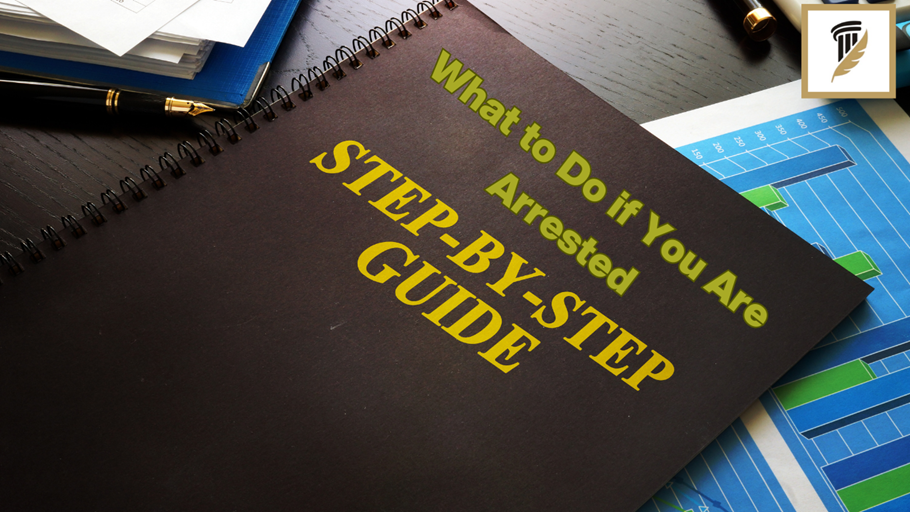Getting arrested for the first time can be an overwhelming and frightening experience. Whether it’s for a minor infraction or a more serious charge, not knowing what comes next often adds to the stress. Understanding the process and your rights can help you make smart decisions and stay calm under pressure. Here’s a breakdown of what typically happens after a first-time arrest and how to prepare for the journey ahead.
1. The Arrest
The arrest process begins when law enforcement has probable cause to believe you’ve committed a crime. You may be handcuffed, read your Miranda rights (“You have the right to remain silent…”), and transported to a local police station or jail. These rights are important, especially the right to remain silent and the right to an attorney—use them. Anything you say can be used against you, so avoid volunteering information without legal counsel present.
2. Booking Process
Once at the station, you’ll go through a formal booking process. This includes:
- Taking your fingerprints and photograph
- Recording personal information
- Running a background check
- Confiscating and logging personal belongings
Depending on the charge and the jurisdiction, you may be held in a cell until your arraignment or released after processing with a citation to appear in court.
3. Initial Holding and Bail
After booking, you’ll either:
- Be released with a notice to appear in court (common for minor offenses), or
- Remain in custody until a bail hearing
During the bail hearing, a judge will decide whether you should be released before trial and under what conditions. If bail is set, you can either pay the full amount or work with a Salt Lake City bail bonds service to post bond on your behalf. Using a bail bondsman can be a practical option if you’re unable to cover the full bail amount upfront. If bail is denied, however, you will remain in jail until your court date. In making these decisions, the judge considers factors such as the nature of the offense, your prior criminal history, and the likelihood that you will return for court proceedings.
4. The Arraignment
An arraignment is your first formal court appearance, usually within 48–72 hours after arrest. During this proceeding:
- You’ll hear the charges against you
- You’ll be asked to enter a plea (guilty, not guilty, or no contest)
- The judge may modify your bail or set conditions for your release
- A future court date will be scheduled
It’s crucial to have a lawyer present, especially if you’re unsure of how to plead. If you can’t afford an attorney, the court will appoint a public defender.
After being processed, you may be given the option to post bail, allowing you to be released from custody while awaiting your court date. This is where understanding the role of bail bonds becomes crucial. In Alamance County, if you find yourself in need of assistance, Alamance bail bonds can provide the necessary support to secure your release. They offer a way to cover the bail amount through a third party, ensuring you can return home and prepare for your upcoming legal proceedings. It’s important to act quickly and understand your options to navigate this challenging time effectively.
5. Building a Legal Defense
After arraignment, the case moves forward. Depending on the charge, this may include:
- Pre-trial motions and hearings
- Evidence discovery (sharing of evidence between defense and prosecution)
- Plea bargaining (where your lawyer negotiates a reduced charge or lighter sentence)
For first-time offenders, courts often consider alternatives to harsh penalties, especially for non-violent crimes. This might include:
- Diversion programs
- Community service
- Probation
- Counseling or rehabilitation
These options aim to help you avoid a criminal record or serve reduced time. An experienced lawyer can help you explore the best outcome.
6. Court Appearances and Trial (if applicable)
If your case goes to trial, it will be heard before a judge or jury. Evidence will be presented, and witnesses may be called. Based on the evidence, a verdict will be reached—either guilty or not guilty.
However, many first-time cases are resolved through plea deals, avoiding a trial altogether. Your attorney can help you decide whether accepting a deal or going to trial is in your best interest.
7. Sentencing and Consequences
If you’re found guilty, sentencing follows. The court will weigh several factors:
- The nature of the offense
- Your background and prior criminal history
- Victim impact statements (if applicable)
First-time offenders often receive lighter sentences, such as probation, fines, or mandated programs. However, the severity of the crime still matters. Felonies typically carry harsher penalties than misdemeanors.
8. Moving Forward After the Arrest
Being arrested for the first time doesn’t mean your life is over. Many individuals successfully rebuild their lives, especially when they learn from the experience and make proactive changes. Here are some steps you can take:
- Comply with all court orders and probation conditions
- Seek counseling or support services if needed
- Explore options for record expungement (removal of the offense from your record)
- Stay informed and avoid future legal trouble
Final Thoughts
Facing arrest for the first time is stressful, but understanding the process helps reduce fear and confusion. Knowing your rights, working with a good lawyer, and taking responsibility when necessary can make a huge difference in your outcome. Whether the offense is minor or more serious, remember that your future is still in your hands—and this can be a powerful moment of personal growth and learning.








